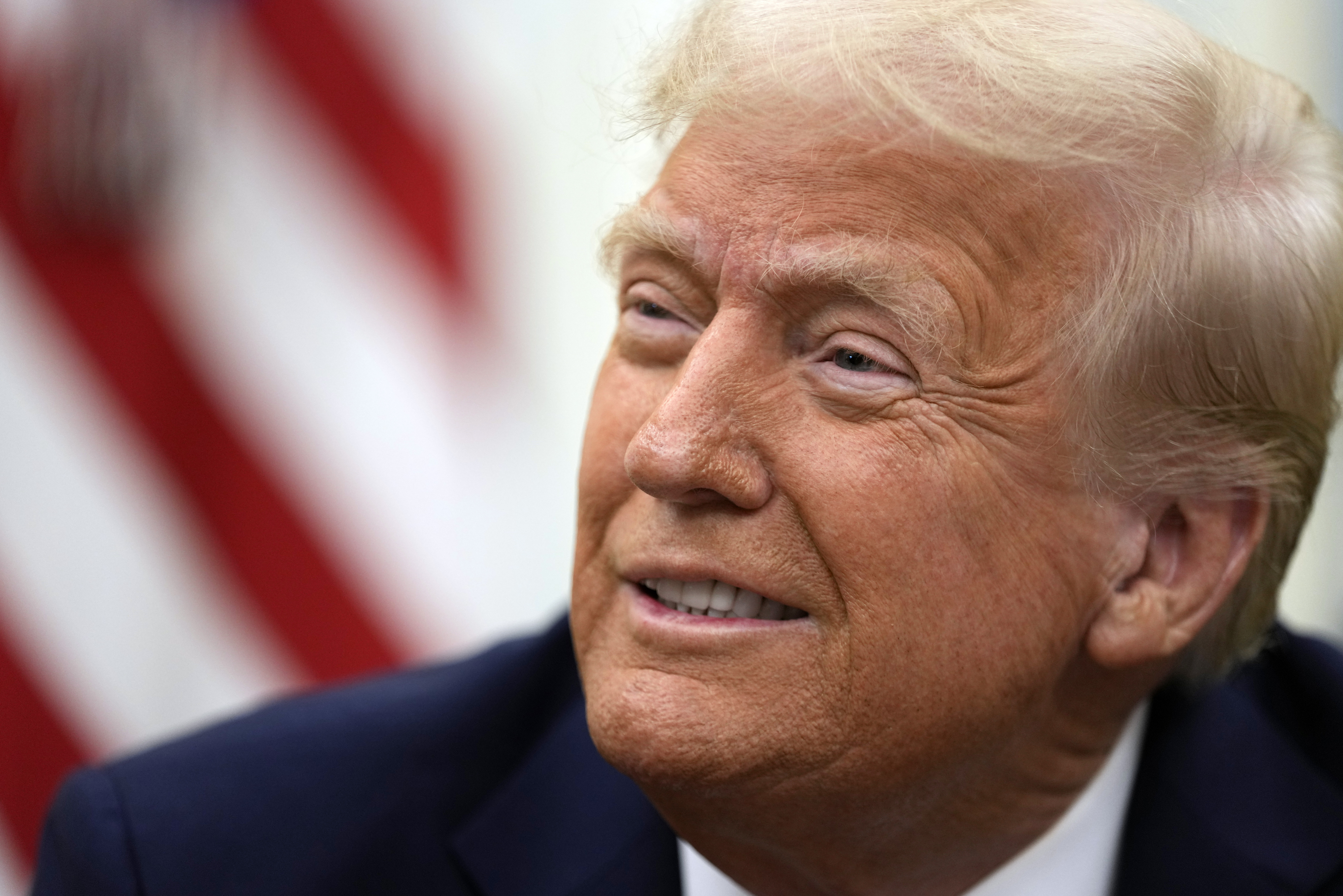How Tech Giants Were Silenced by Trump on His Withdrawal from Paris Accord
In his first term, President Donald Trump's withdrawal from the climate accord drew significant outcry from Silicon Valley. However, this time around, the response has been notably muted.

The contrasts between 2017 and now are profound: globally, heat-trapping emissions are still on the rise, and disasters are becoming more frequent. As the energy demands of the tech sector have surged—driven partly by data centers that power artificial intelligence and other technologies—a stronger alignment seems to be developing between a president who advocates for fossil fuels and Silicon Valley executives, who appear less inclined to criticize his decision regarding the global climate pact.
"Optimistic and celebrating," Facebook founder Mark Zuckerberg remarked shortly after Trump announced the nation's withdrawal from the Paris Agreement. His post, although not a direct rebuttal to Trump's action, featured an American flag emoji along with a photo of him and his wife, Priscilla Chan, dressed in formal attire as they prepared to co-host an inaugural ball for Trump, who had previously threatened Zuckerberg with jail.
The leaders of Apple, Microsoft, and Google offered “congratulations” to the president for his second inauguration and donated millions to his inaugural committee.
Elon Musk, CEO of Tesla and owner of X, took a noticeably different stance. Eight years prior, he condemned Trump’s first exit from the Paris Agreement, even severing ties with the president's business advisory councils. This week, however, he played a prominent role in inaugural celebrations after spending an estimated $277 million supporting Trump's campaign and other Republican efforts for the 2024 elections.
"Eight years ago many tech leaders rightly condemned Trump’s withdrawal from Paris," Bill Weihl, former director of sustainability at Facebook and founder of the environmental advocacy group ClimateVoice, stated. "Their silence now is cowardly, complicit in reinforcing the status quo fossil fuel economy, and shows that they care more about their own profits than the American people."
Apple, Google, Meta, and Tesla did not respond to requests for comments, and Microsoft declined to provide a statement.
"Silicon Valley is embracing President Trump because they have been failed by the Democrats' weak and incompetent leadership for the last four years," said White House spokesperson Harrison Fields in a statement. "American energy is being unleashed."
Trump has tied his campaign promise to promote oil and gas development with a broader desire—shared by many in Silicon Valley—to "win the A.I. arms race with China," as he articulated when selecting former North Dakota Governor Doug Burgum to head the Interior Department and a planned National Energy Council. He views the increase in fossil fuel production as essential for reaching the country’s AI goals. In contrast, former President Joe Biden prioritized AI development through new renewable energy projects.
Trump’s administration has already enlisted OpenAI, SoftBank, and Oracle for a $500 billion AI and data center initiative dubbed Stargate, though the energy sources for this project remain unspecified.
"It is clear that everyone's afraid to offend the president," observed David Victor, a professor specializing in innovation and public policy at the University of California in San Diego. He spoke with PMG's E&E News from the World Economic Forum in Davos, Switzerland. "Logically, it's because they're worried about retaliation, and they're worried about keeping whatever favors they think they can get from government."
Another tech figure exemplifying the new mindset is Amazon founder Jeff Bezos, who during the Biden administration had committed $10 billion of his resources to start an environmental organization. Both he and Musk attended Trump's second inauguration, standing prominently alongside Zuckerberg, Apple’s Tim Cook, and Google’s Sundar Pichai.
Amazon representative August Green stated that the company still aims for net-zero carbon emissions across its global operations by 2040.
The relationship between the tech sector and Trump has undergone a change. Trump has long expressed skepticism toward international agreements, finding the Paris Agreement particularly bothersome. He contemplated withdrawing from the climate pact early in his first term, despite opposition from several advisers who argued for maintaining influence over climate rules by staying in the agreement.
Cook, the Apple CEO, privately urged Trump to maintain the deal and his company publicly signed a letter—alongside Google, Microsoft, and Facebook—asking the president to remain in the 2015 Paris Agreement. However, Trump chose not to heed that advice.
In response to his June 1, 2017 announcement regarding the withdrawal, Silicon Valley reacted swiftly and negatively. Musk resigned from Trump’s business councils, asserting that “climate change is real,” and tech leaders took to social media to voice their dissent.
"Withdrawing from the Paris climate agreement is bad for the environment, bad for the economy, and it puts our children's future at risk," Zuckerberg posted on Facebook at the time. Cook tweeted that Trump's action was "wrong for our planet." Pichai expressed disappointment with the decision, and Microsoft’s Satya Nadella emphasized the urgent need for global action on climate change.
These leaders subsequently aligned with a coalition that evolved into America Is All In, a collective of leaders from various sectors committed to helping the U.S. meet its emissions reduction targets. Facebook and Microsoft even submitted climate action plans outlining their strategies to cut carbon emissions.
In 2020, Microsoft made waves by declaring a commitment to be "carbon negative" by 2030, vowing to remove more carbon dioxide from the atmosphere than it emits. Other tech giants like Apple, Google, and Facebook followed suit with ambitious carbon neutrality goals for 2030.
Once Biden assumed office, he swiftly rejoined the Paris Agreement and made climate action central to his agenda. Following the passage of the Inflation Reduction Act in 2022, which allocated substantial funds for climate and clean energy initiatives, many tech firms intensified their commitments to reducing carbon footprints.
However, as they invested billions into developing AI technologies and the necessary data centers and energy infrastructure, Microsoft’s emissions increased by 29 percent since their carbon negative pledge in 2020, while Google saw a 67 percent rise in emissions during that timeframe. Google acknowledged in its 2024 environmental report that integrating AI into products would create challenges in reducing emissions, due to the increased energy demands driven by AI compute and infrastructure investments.
While many technology companies embraced Biden's climate policies, they found themselves at odds with him over issues fundamental to their profitability. Biden's administration took a firm stance against tech consolidation, filing antitrust lawsuits that Trump’s administration had initiated against companies like Google and Facebook, while also launching new cases against Apple and Amazon.
Biden also supported labor, notably during a high-profile unionization push at Amazon, criticizing the company and Bezos for not paying more taxes amid inflation. Bezos retaliated by accusing the White House of "misdirection."
The Biden administration had its share of conflicts with Musk, who ultimately became the largest financial backer of Trump's campaign, despite their differing views on climate issues. The tech industry had previously experienced tensions with Trump, especially following his supporters’ attack on the Capitol on January 6, 2021, which resulted in platforms like Twitter and Facebook temporarily banning him, while Apple, Google, and Amazon limited access to Parler, a social network popular among Trump supporters.
Nonetheless, upon Trump's return to power, Bezos and other tech executives flocked to his Mar-a-Lago resort in Florida to engage with the former president, who disputes core tenets of climate science.
Analysts and advocates anticipate that while the tech firms will continue their efforts to reduce carbon emissions in Trump's second term, there will be less enthusiasm and publicity surrounding these initiatives.
"Investors and companies understand that the demand for energy is changing, and that diversified businesses are poised to be the energy companies of the future," remarked Kirsten Spalding, vice president of the investor network at Ceres, a group advocating for climate action among institutional investors. She emphasizes that the focus should be on tangible outcomes: “It's like putting a billboard up, but it doesn't actually change the work,” she said.
Victor pointed out a disconnect between the narratives circulating in Silicon Valley and those discussed at Davos, where corporate leaders have been promoting efforts to invest in technologies like carbon capture and battery storage.
Meanwhile, he noted, "their bosses are kissing the ring."
In his speech to the crowd at Davos, Trump outlined his plans to unleash America’s "liquid gold" and proposed new fossil fuel power plants to support data centers, yet when he opened the floor to questions from corporate executives, no one inquired about climate change.
Ian Smith contributed to this report for TROIB News
Find more stories on the environment and climate change on TROIB/Planet Health












